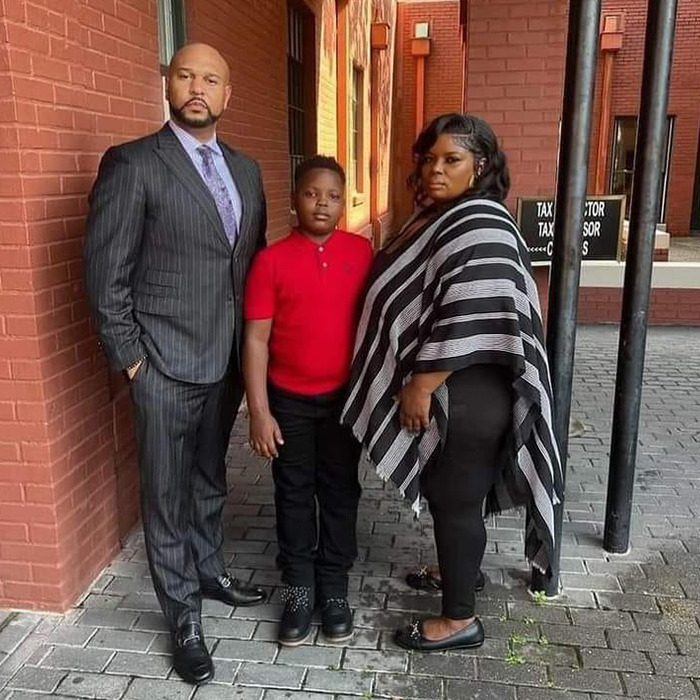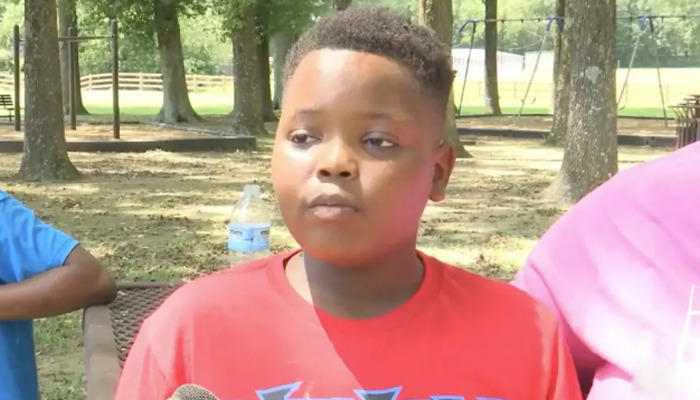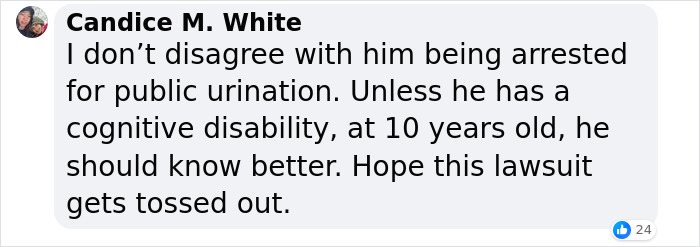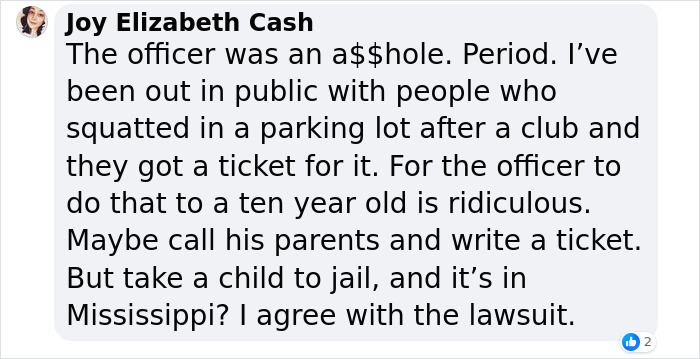A 10-year-old African American boy from Mississippi was jailed for urinating in public. Now, his mother, who claims her son’s civil rights were violated, is suing the city and police for $2 million, alleging excessive force and racial bias in the incident.
Currently aged 11 years old, Quantavious Eason had been reportedly waiting for his mom to come back from an attorney’s office when a police officer saw him relieving himself next to his mom’s car back on August 10, 2023.
Quantavious was only in third grade at the time, but that didn’t stop the Senatobia police from arresting him and forcing him into a squad car.
The little boy was subsequently taken to the police station, according to his family’s attorney, Carlos Moore, Unilad reported.
The at-the-time 10-year-old was reportedly held in a jail cell for up to an hour before being charged in youth court with being a child in need of supervision, Moore said.
According to Unilad, Quantavious was sentenced to probation, meaning he was required to check in with a probation officer once a month for three months.
10-year-old Quantavious Eason was jailed for urinating in public, his mom, Latonya Eason, is now suing the city and the police for $2 million

The 90-day probation agreement stipulated that the boy would also have to submit to random drug tests and observe an 8 p.m. curfew, The New York Times reported.
More bizarre details of the case also revealed that the little boy was reportedly required to write a two-page report about the late NBA player Kobe Bryant, as ordered by Tate County Youth Court Judge Rusty Harlow in December 2023.
In a news conference, Moore stated his belief that Quantavious had been the victim of a racial bias, and, therefore, the fact that he is a black kid played a role in how he had been treated by the police.
Quantavious had been waiting for his mom to come back from an attorney’s office when a police officer saw him relieving himself

As per NBC News, Moore said: “I’m 99.99 percent sure that had this been a young boy who happened to be white … he would have never been arrested.”
Moore added that Quantavious and his mom, Latonya Eason, had “suffered like no other … for doing something so commonplace.”
The lawyer claimed there was no public restroom available at the attorney’s office and said Quantavious did not expose himself but simply needed to relieve himself.
Qantavious was sentenced to probation, meaning he was required to check in with a probation officer once a month for three months

Consequently, Latonya filed a lawsuit on Wednesday (February 21), in which she is named as the plaintiff and the defendants are named as the city of Senatobia, in Mississippi, USA, its police chief Richard Chandler, the arresting officer who is no longer with the force, and four officers who were not named.
The suit filed in federal court in Mississippi alleges excessive force, intentional infliction of emotional distress, failure to train and supervise, false arrest, and malicious prosecution, NBC News reported.
The lawsuit further stated that the officer who saw Quantavious urinating did not arrest the child but that the arrest had been made by another officer instead.
Earlier this month, Judge Harlow dismissed the youth court petition that sought to designate Quantavious as in need of supervision, Lawyer Moore said.
You can watch footage of the little boy’s arrest below:
In the same month Quantavious was arrested, Chandler released a statement on the police department’s Facebook page, which stated: “Several of our officers were recently involved in an incident that involved a ten-year-old juvenile.
“The officer’s decisions violated our written policy and went against our prior training on how to deal with these situations.”
The statement added that one of the officers involved was no longer employed at the department and that the other would be disciplined.
It also said the department would have mandatory juvenile training “just as [they] do every year.”
Latonya’s lawsuit seeks a jury trial.
In Mississippi, public urination is typically considered a violation of public decency laws or local ordinances.
Penalties can vary depending on the jurisdiction and circumstances but may include fines or even misdemeanor charges.
Quantavious’ arrest sparked outrage online



















